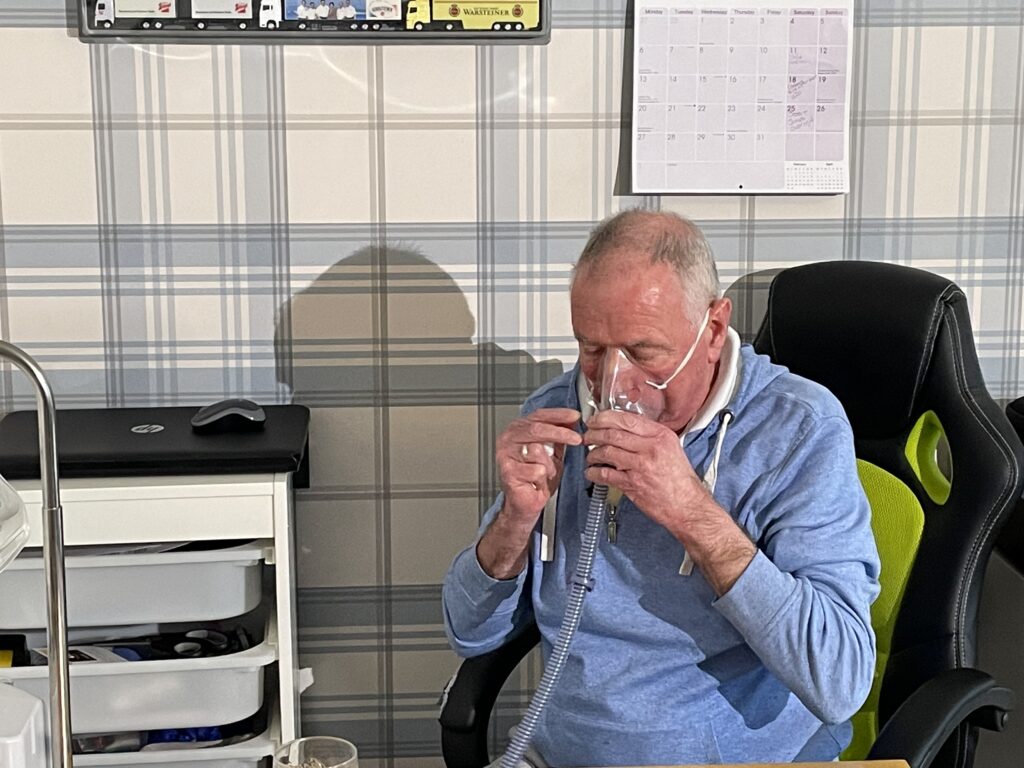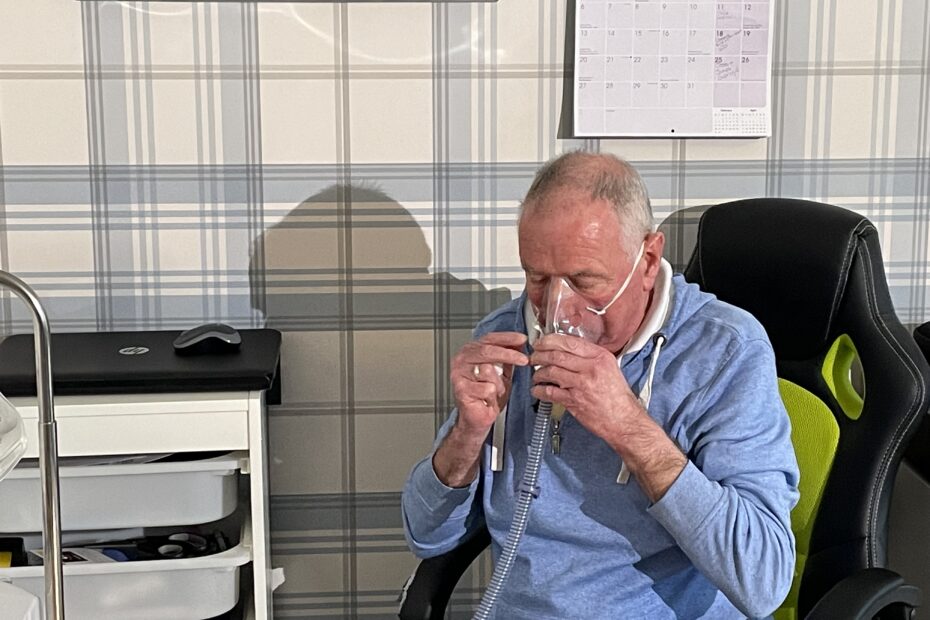
The equivalent of 1,200 extra bed day capacity has been created thanks to a pilot initiative launched 12 months ago by Glasgow City Health and Social Care partnership on behalf of NHS Greater Glasgow and Clyde. Hospital at Home provides acute level treatment and care to patients in their own homes.
So far the pilot has cared for 329 patients in the community and numbers are set to increase as the programme expands across the HSCP.
Hospital at Home aims to keep patients out of hospital by providing the same level of high-quality multi-disciplinary care they would receive as inpatients.
Eligible patients are identified either upon presenting at A&E – thus avoiding admission – or inpatients might be identified as candidates, or patients can be referred by their GP. Patients need to be over the age of 65 to be suitable for the service.
An example of a Hospital at Home patient would be an elderly person who has fallen at home, has a severe infection, delirium, or who has seen an acute functional decline due to an existing health condition. Individual assessments take place for each patient before a decision is made.
Patients who are treated within Hospital at Home also have access to hospital-level diagnostics, such as endoscopy services, radiology, cardiology and a range of urgent hospital-level interventions such as IV therapy and oxygen.
Care is delivered by a team of Nurses (including Advanced Nurse Practitioners and Consultant Nurse), GPs, Pharmacists, Occupational Therapists and Consultant Geriatricians.
Hospital at Home patients receive an average of 10 visits each during their period within the service, with the average length of Hospital at Home treatment being around five days.
The plan is for the initial pilot to be rolled out to other areas within the Health Board.
Susanne Millar, Chief Office of Glasgow Health & Social Care Partnership said:
“We know that for many older people a hospital admission presents the risk of a decline in their physical ability and their mental health. Receiving treatment in their own home is, in some cases, preferable to hospital admission, particularly when they have well stablished care arrangements in place. Hospital at Home patients have told us that they have been delighted with the care they have received from the service. Patients and their families have expressed how grateful they have been to receive this enhanced level of care without having to have a stay in hospital.”
Dr Scott Davidson, Deputy Medical Director for Acute Services within NHS Greater Glasgow and Clyde, said:
“Creating additional bed capacity is a key challenge facing the health service, so we welcome initiatives such as Hospital at Home, where we see the benefits as two-fold. Older patients avoid the risks associated with hospital admissions such as a decline in physical ability and hospital infections but receive the same high-quality treatment at home. Operationally, we can use the additional bed space up for other patients, which is extremely important just now as we see higher demand on bed capacity than ever before.”
Suzanne Adams, Lead Nurse for the Hospital at Home service said:
“Normally patients would need to be in a hospital bed to get access to hospital level care, however, research suggests on many occasions if the same treatment can be provided at home, then the outcomes for the patient will be better. This is particularly true of older patients, where there may already be a level of community care in place. It’s about complementing that with acute level input so that the patient can recover at home.”
ENDS

